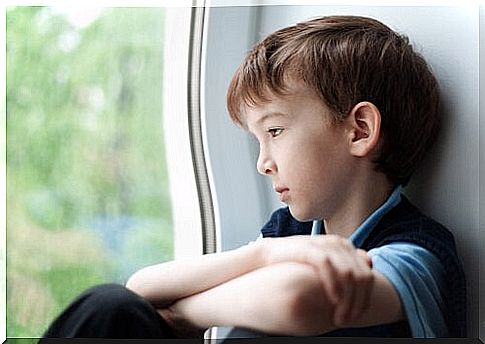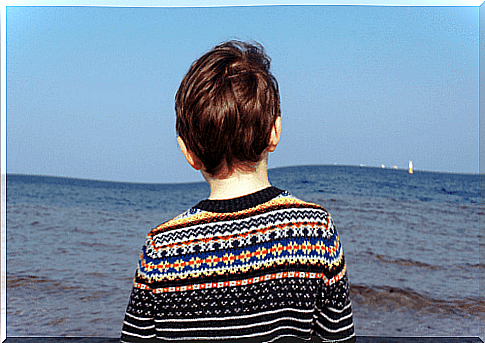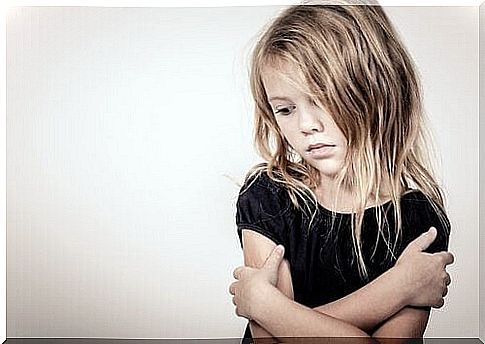Three Misconceptions About Children And Grief

Grief is a painful process that even children experience. But we do not always understand how they experience it. In fact, despite the fact that most children resolve their grief without major complications, it is important to understand how they go through this process and that we get rid of the misconceptions we have about children and grief.
In this way, if our children have to face this painful situation, we can help them in the best possible way. To better understand these misunderstandings, we must first define exactly what grief is.

What exactly is grief?
Grief is a process with many stages that involves dealing with a loss. It usually begins after the death of a loved one. However, it can also manifest itself after, among other things, losing a job, a break-up, or a pet passing away.
According to psychologist Klüber-Ross, there are five stages of grief that a person must go through to overcome loss. Each person will experience grief in their own way.
Here are the five stages of grief:
- Denial : During this stage, the person cannot believe what has happened and uses denial to defend himself from the pain. Their minds are trying to find a way to stay healthy, despite the fact that the grieving person is extremely vulnerable.
- Anger : This stage begins when the person finally accepts the loss. During this stage, the person feels frustrated and impotent with what has happened.
- Negotiation : The grieving person tries to find a way to reverse the situation. In the event of the death of a loved one, they may resort to religious or supernatural beliefs. Furthermore, the emotional pain will be stronger during this stage than anything else.
- Depression : The person falls into deep desperation and sadness because they feel helpless.
- Approval : In the end, the person accepts that what happened is irreversible. However, unlike in the previous phase, the person realizes that they can live with the loss. During this stage, they look back and learn from the situation.
On the other hand , it is important to remember that children experience this process differently, especially if they are young. During the first years of life, children are usually very physically and emotionally dependent. Therefore, they cannot understand death and its consequences. But what they notice is the person’s absence. Consequently, they experience feelings of abandonment and lack of protection.
What are the most common misconceptions about children and grief?
Children do not realize what is happening
The most dangerous misconception about children and grief is that children do not know anything. It may be true that children do not understand exactly what death is. But they notice the changes in their environment. Therefore, they will miss the person who has passed away. They will also notice that the adults around them are going through a difficult time.
The main problem with this misconception is that it leads to people not supporting children in the way they need. But losing a loved one is also difficult for them. Therefore, during this time, they need more love, attention and understanding than ever before.

Their grief should not last long
This misconception has to do with the assumed sufficient duration of grief. Some people mistakenly believe that missing someone for a long time is a sign of weakness. Therefore, some parents believe that a child should overcome the death of a loved one as soon as possible.
However, this puts too much pressure on the little ones. It will make them not only have to deal with their pain, but also the feeling that they do not meet the expectations of others. In these situations, it is necessary to understand that children need enough time to express their grief correctly.
Not all deaths lead to grief
Finally, some people believe that not all deaths should lead to pain. Emotions, however, are not so easy to control. Therefore, our children must ensure a loss that in theory should not be so difficult on them. For example, this could be the case of the death of a pet or someone who was not very close to them.
Children and grief
The key to this process is understanding. We must remember that children do not choose to be sad. Therefore, we must be patient with them and help them to the best of our ability.









